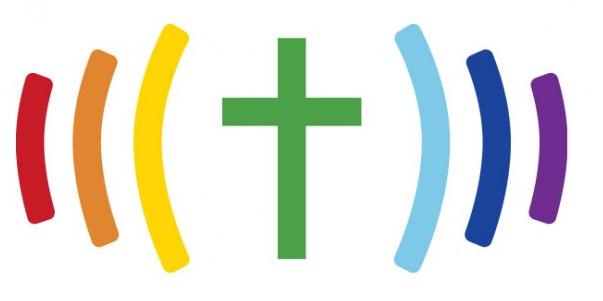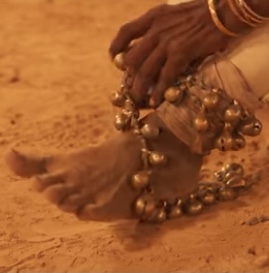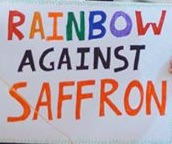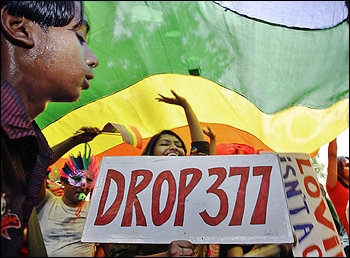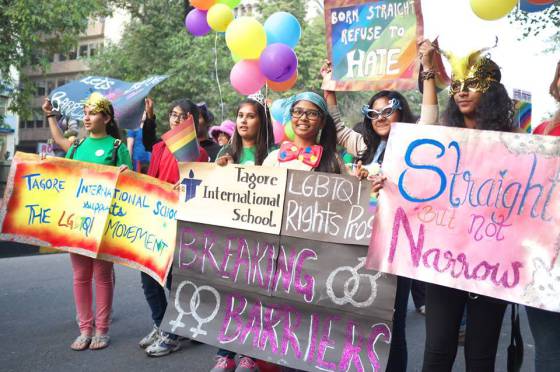Marriage Equality: Letter to Tamil Nadu Government from LGBTQIA+ Communities
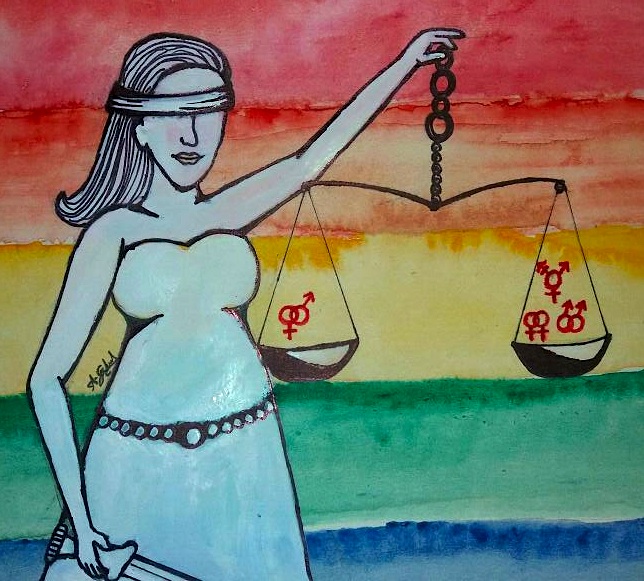
May 3, 2023
To:
The Government of Tamil Nadu
Subject: MARRIAGE EQUALITY Report Summarising the Needs and Demands from the LGBTQIA+ Community in Tamil Nadu
Given the pendency of the marriage equality petitions before the Hon’ble Supreme Court of India, a meeting was conducted in Chennai on April 23, 2023, in which members of LGBTQIA+ groups such as Kattiyakkari, Nirangal Charitable Trust, Orinam, Queerbatore, SAATHII, Sahodaran, Tamil Nadu LGBTIQ Movement. Trans Community Kitchen (Chennai), Thozhi, and Trans Rights Now; and individual activists, lawyers, mental health professionals and academics were present. These groups and individuals are part of Tamil Nadu Rainbow Coalition, an informal network first established as the Chennai Rainbow Coalition in 2009 and subsequently expanded across the state.
An open discussion was had, and the following points are now being submitted to the Government of Tamil Nadu for its consideration, in the event states have an opportunity to make submissions before the Hon’ble Supreme Court.
- Introduction
- Marriage and its Benefits – Why does the LGBTQIA+ community require the social protection of marriage
- Can the existing personal laws be modified to include the LGBTQIA+ community?
- Notice Period Requirement in the Special Marriage Act
- A Step Forward in the the Future of Personal Laws – The Right to Chosen Family
1. INTRODUCTION:
1.1 The State of Tamil Nadu has granted legal recognition to the transgender community and has constituted a welfare board since 2008, six years prior the Supreme Court’s verdict in NALSA vs Union of India. In more recent times, the marriage between a transwoman and a man was held to be valid under the Hindu Marriage Act by the Hon’ble Madras High Court in Arun Kumar and others vs Inspector General of Registration and others. In the case of S. Sushma vs Commissioner of Police, the Hon’ble Madras High Court has examined the struggles faced by the members of the LGBTQIA+ community in detail, and has issued directions to various government authorities in order to ensure their protection and safety.
1.2 As a state that has historically recognised and supported members of the queer community both through policy reform, judicial pronouncements, and government directives and as a state that has brought about an amendment to the Hindu Marriage Act in the year 1968 to include suyamariyathai or seerthiruththa thirumanam (self-respect marriages) in the ambit of a Hindu marriage, Tamil Nadu’s position in this litigation should unequivocally be in support of marriage equality, and the rights of LGBTQIA+ individuals to be able to solemnise marriages irrespective of gender markers (M, F, T).
1.3 In the present batch of petitions before the Hon’ble Supreme Court of India (also referred to as “Marriage Equality Petitions” going forward) Tamil Nadu should support marriages both under the Special Marriage Act as well as under religious personal laws.
2. MARRIAGE AND ITS BENEFITS
2.1 Marriage is the most socially accepted social union between two adults. This has also been discussed in detail by the Petitioners in the Marriage Equality Petitions.
2.2 The State of Tamil Nadu also recognises this social protection given by marriage, and thus has marriage assistance schemes to assist daughters of poor parents, orphan girls, widows who remarry, widows daughter’s marriage and inter-caste married couples through the Dr. Dharmambal Ammaiyar Ninaivu Widow Remarriage Assistance Scheme, E.V.R. Maniammaiyar Ninaivu Marriage Assistance Scheme For Daughters Of Poor Widows, Annai Therasa Ninaivu Marriage Assistance Scheme For Orphan Girls, Dr. Muthulakshmi Reddy Ninaivu Inter-Caste Marriage Assistance Scheme.
2.3 An argument has been advanced by the Union Government that marriage is not necessary or important for the members of the LGBTQIA+ community, and that their fundamental rights are not denied because they are not able to get married. Restrictions within the existing matrimonial law framework were highlighted, and the submission of the Union Government can be condensed to – “They can exist in this country, but they cannot get married in the current legal framework, and this inability to get married is not a violation of their fundamental right”. This is an incorrect understanding of the law, and the requirements of this community. For a persecuted group who are more often than not asked to leave or are thrown out of their birth families and familial homes owing to the stigma associated with their existence, LGBTQIA+ individuals struggle to find their footing in society. They choose their families and they build their community. Living in as domestic partners does not stand on the same footing of marriage today. In the Hon’ble Supreme Court judgement of D.Velusamy vs D.Patchaiammal, it was held that even the protection under the Protection of Women from Domestic Violence Act, 2005 was only available to couples who are in a live-in-relationship if their domestic relationship “is in the nature of marriage”.
2.4 Thus, for the Union Government to gate-keep this institution, which by its very laws and policies gives rise to various benefits, is tantamount to deliberately depriving the LGBTQIA+ community- an already vulnerable portion of Indian society of the rights and benefits available to heterosexual people.
2.5 The importance of marriage as a social institution that gives rise to benefits, responsibilities, duties, and oversight by the status cannot be replicated through any other form of living arrangement or domestic partnership both in the Indian legal framework as well as the Indian cultural context. A short and non-exhaustive list outlining the protection offered by marriage includes:
Protection offered through Marital Status
- Unless both or one of the individuals to the marriage want to dissolve their union, nobody else can do it. This aspect is invaluable to members of a community who are frequently deliberately separated by birth parents in order to prevent their relationship from proceeding further.
- It is easier to find accommodation in rental houses as a married couple, than it is as unmarried people in India right now. This is extremely useful to members of the LGBTQIA+ community who are more often than not asked to leave their birth families, unable to find permanent jobs as their education certificates and identity proof is not immediately available to them, and they have to move from one place to another in search of employment
- The benefits of opening a joint bank account, purchasing life insurance with nominees as a spouse will now extend to the LGBTQIA+ community.
- The ability to take health related decisions and be the nominee of their partner in the case of emergencies will now extend to the LGBTQIA+ community. Hospitals and health care professionals all require either blood relatives or spouses to sign off on life-saving treatments and surgeries, and at present, this crucial benefit is not available to members of the LGBTQIA+ community, many of whose members are separated and cut-off from their birth families who refuse to accept their choices and a community where members are also at risk of sexually transmitted illnesses.
- In addition to providing security during the life-time of a couple, marriage also grants benefits that can make it easier to navigate through the death of a spouse such as compassionate appointment, the right to receive mortal remains, and makes it easier to execute a will or obtain a legal heir certificate to carry out formalities after the spouse’s death.
3. CAN THE EXISTING PERSONAL LAWS BE MODIFIED TO INCLUDE THE LGBTQIA+ COMMUNITY?
3.1 The Hindu Marriage Act uses the terms “bride” and “groom”. The Special Marriage Act uses the terms “persons”, “parties”, and in the declaration uses the terms “husband and wife”. The Christian Marriage Act uses the terms “persons”. Removing the gender barrier in terminology can happen if the words bride, groom, husband, and wife are replaced by the words persons and spouses.
3.2 The list of prohibited relationships can be merged and make way for one comprehensive list so that the concerns of the legislature about inter-familial marriages are met.
3.3 The legal age to marry can be modified to become 18 – the age of majority. This is particularly important for LGBTQIA+ persons as parents who identify that their children are gender-nonconforming at an early age try to get their children married off as soon as possible.
4. NOTICE PERIOD REQUIREMENT IN THE SPECIAL MARRIAGE ACT
4.1 The existing framework in the Special Marriage Act involves a notice period requirement that is unconstitutional. Following the notice intending marriage, details of the people intending to marry will be publicly exhibited in their respective jurisdictions. This can have devastating consequences for LGBTQIA+ individuals who have fled from their birth families, and risk confinement, institutionalisation, forced conversions, and even honour killing. The 30 day objection period is also a cause for concern, as the word objection is not defined, and anybody can object. The notice period will place already vulnerable and persecuted individuals at grave risk, and will cause many hurdles in implementing marriage equality among members of the LGBTQIA+ community.
4.2 Thus, the Tamil Nadu government should support declaring Section 5 and 6 of the Special Marriage Act as unconstitutional. Any rights granted to the members of the LGBTQIA+ community with respect to marriage under the Special Marriage Act regime cannot be implemented when the notice period clause is still in force.
5. A STEP FORWARD IN THE FUTURE OF PERSONAL LAWS – THE RIGHT TO CHOSEN FAMILY
5.1 While the right of LGBTQIA+ individuals to marry can definitely improve the quality of life of queer individuals and is the right step forward, the future of the community can only be safeguarded when they have the right to choose their families. Unlike cis-heterosexual relations where familial bonds are strong and regulate social conduct and life, many members of the LGBTQIA+ community are forced to leave or are thrown out of their birth families and their native villages/ community.
5.2 Legal recognition to chosen families, by granting ration cards, identity proof in the same address, protection to couples forced to flee natal families, rights to parenting and custody, inheritance, rights of chosen family members to make medical decisions, insurance, and extending government incentives and schemes that are given to other families can greatly benefit the community.
5.3 In addition to this, any change in law or policy would be incomplete without adequate sensitivity training being given to law enforcement agencies and other departments who come in contact with LGBTQIA+ individuals when they are at their most vulnerable. Hence, sensitisation programs to police and prison authorities, district and state legal service authorities, judiciary as per the order of the Madras High Court dated 07-06-2021 in Sushma and another vs Commisioner of Police and others is the need of the hour. The State of Tamil Nadu can rest assured that the signatories to this note, and community leaders at the grassroots level will render any assistance required to facilitate these programs.
Thanking you,
Representatives of
Kattiyakkari, Nirangal Charitable Trust, Orinam, SAATHII, Sahodaran, Tamil Nadu LGBTIQ Movement. Thozhi, and Trans Rights Now; and individual activists
தமிழுக்கு இங்கே கிளிக் செய்யவும்
Image credits: Gokul

